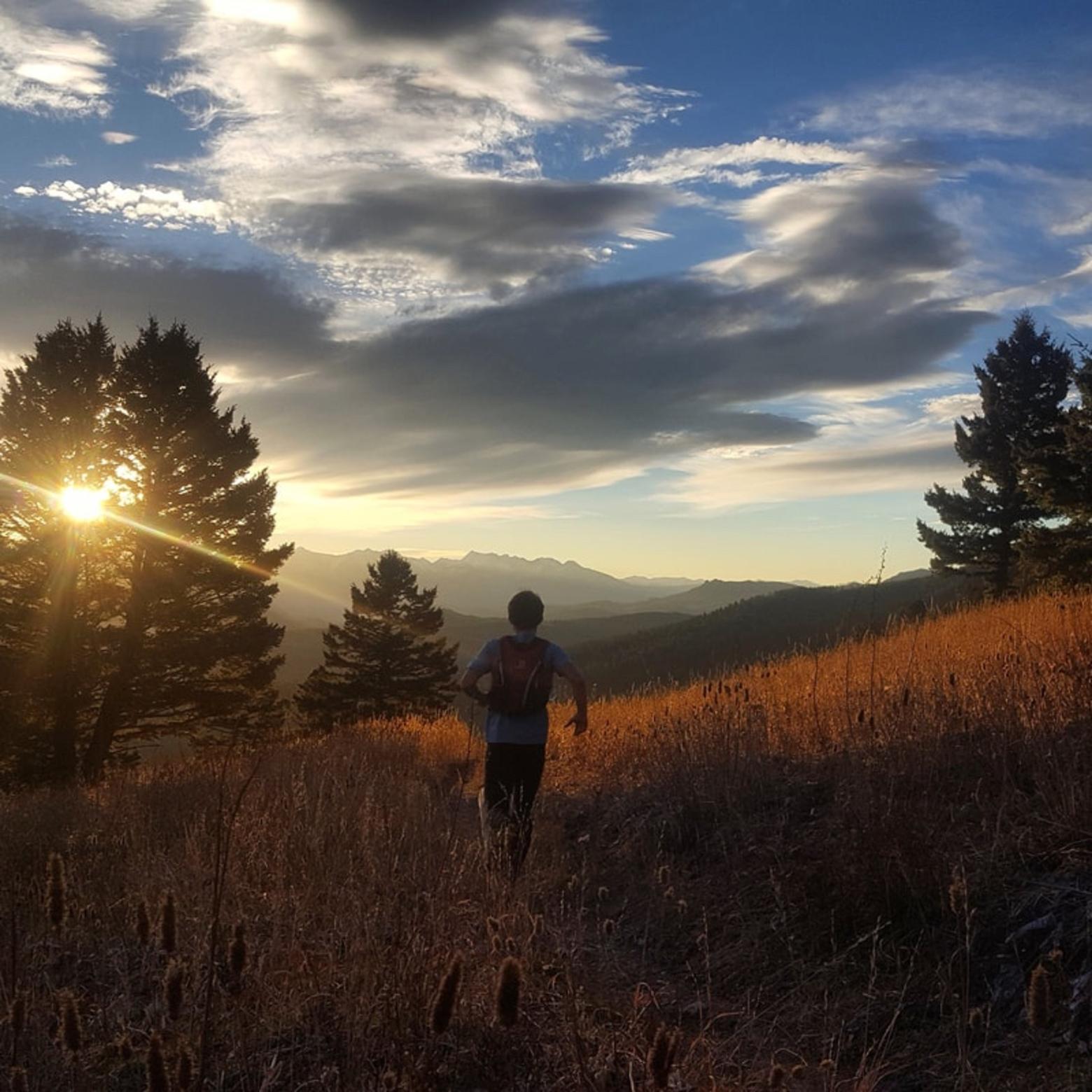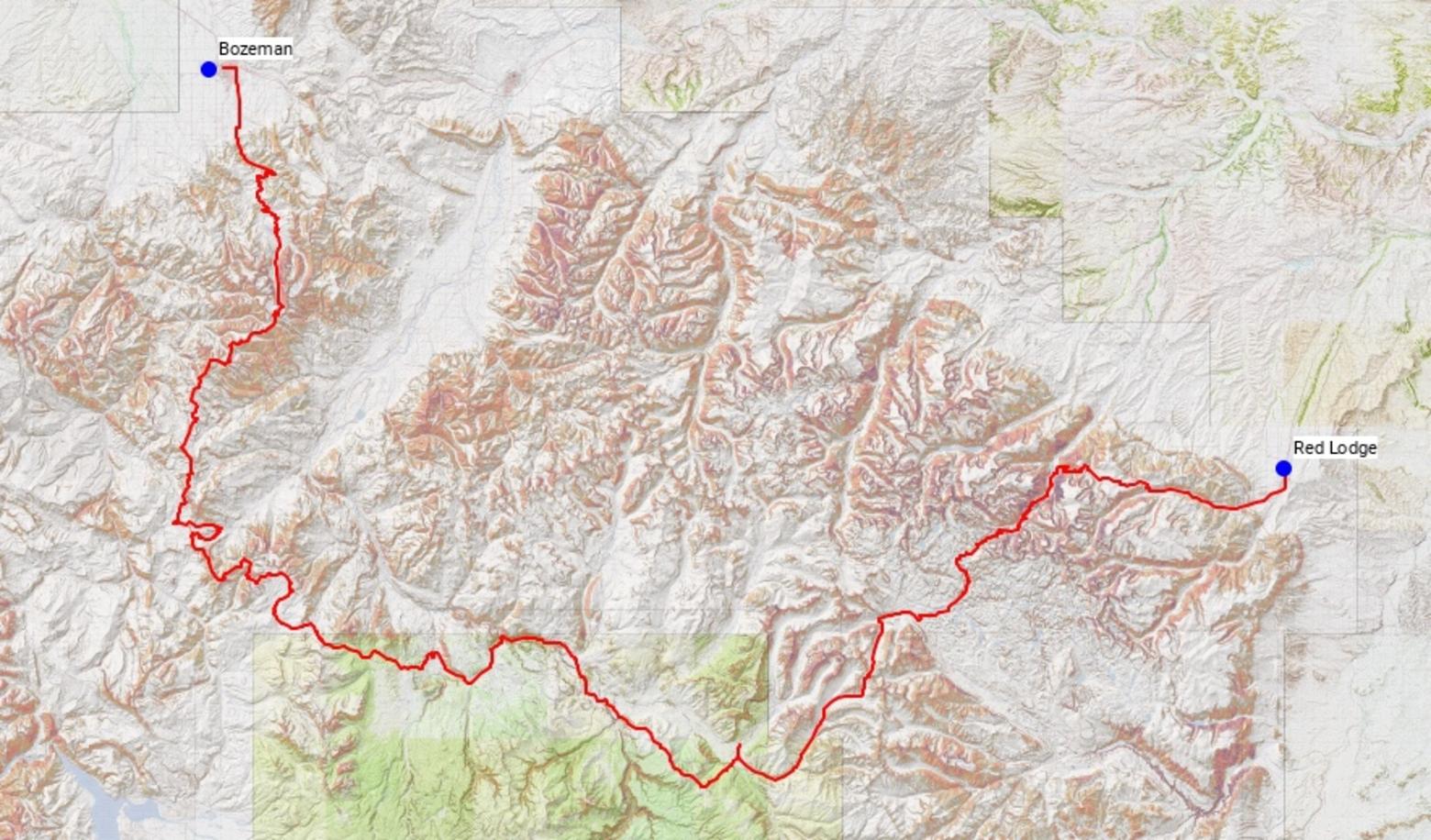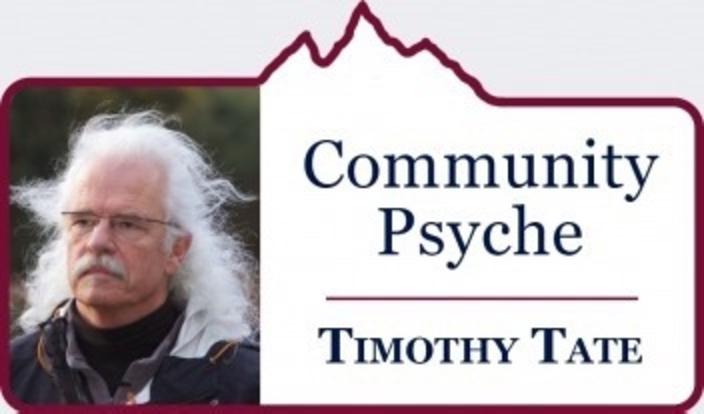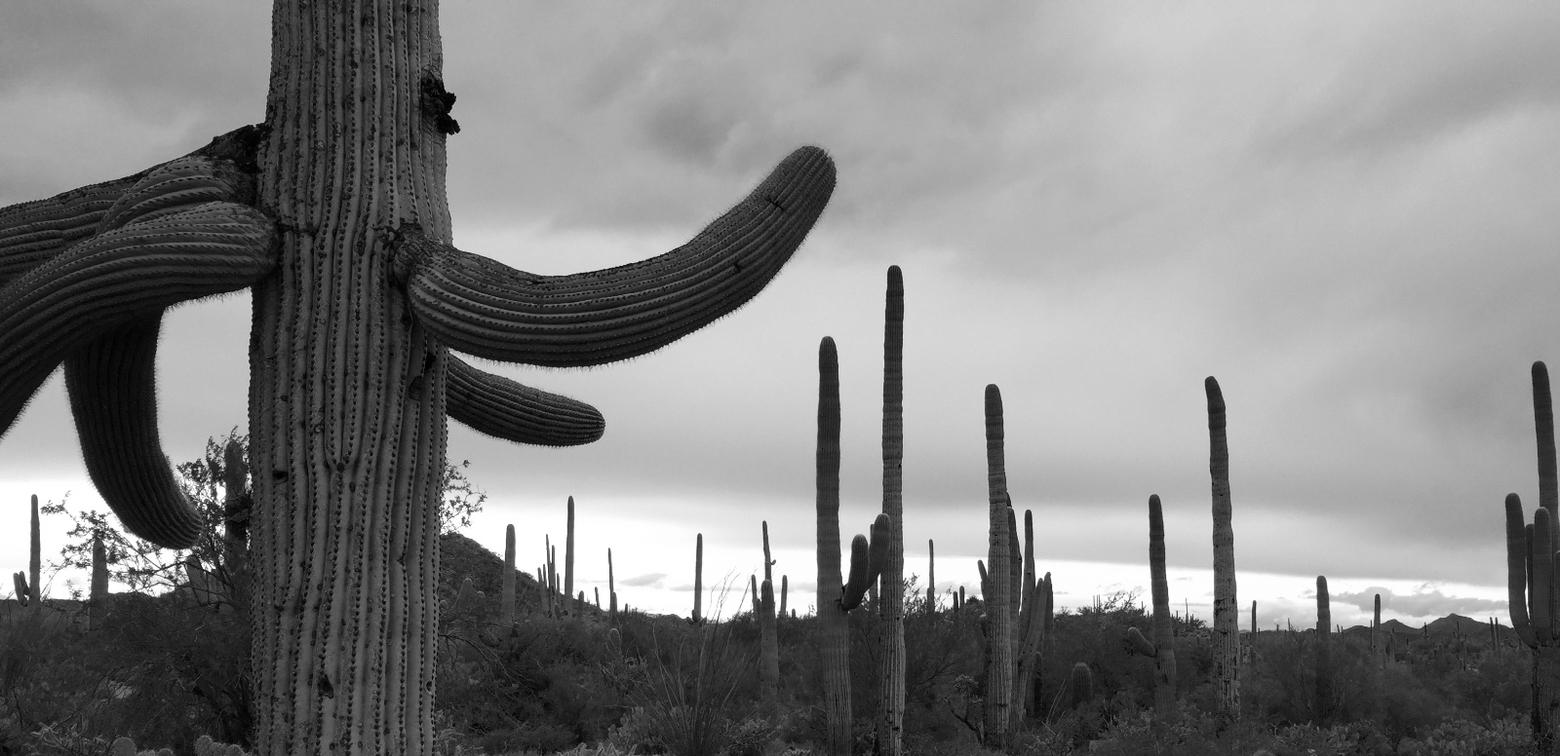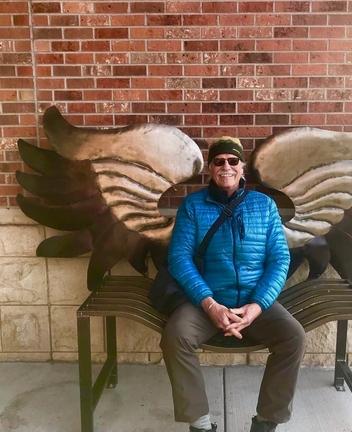Back to StoriesChasing Summits And Running Toward The Sun
October 31, 2017
Chasing Summits And Running Toward The SunOne Week After Timothy Tate Wrote About Tragedy In The Mountains, He Pens Another On Using, But Not Using-Up The Places That Inspire
When I’m not working behind The Blue Door, one of my in-town
escapes is being a deejay with a radio show up at the college campus. I was on
my way to KGLT studios last week when a young man called out, apparently recognizing
me from my photograph here.
“Are you the guy who wrote the article in Mountain Journal?” he asked.
I wondered where he would be headed with the question.
I turned and smiled. “Yes, I am.”
“Can I talk to you about it?”
The piece he was referencing, written in the aftermath of a
tragedy in the mountains involving two well-known American climbers, brought a
flood of comments to Mountain Journal via telephone calls and email from around
the world.
For many, it somehow touched a tender nerve not only among
wide-ranging members of the climbing community but among outdoor-oriented young
people and their parents.
The fit, slender, bright, tall, wide-eyed man—how’s that for
adjectives—was Dave Laufenberg, who's getting a graduate degree in ecology at Montana State University focused on forested mountain environments. He cracked me wide open with his thoughts on
how the column’s content fit his experience in the mountains and how it
reflected, in some ways, his own evolving thinking.
Dave, in case you don’t know, recently joined two other trail
runners on an epic transverse of the mountains. They ran from Bozeman to Red
Lodge, Montana on foot, in a crossing that covered seven days, 236 miles and
42,000 vertical feet. Their route (see below) took them into the rugged heart of the Gallatins, across the Yellowstone River, through Yellowstone National Park into the northern extensions of the Beartooths and Absarokas.
Dave’s companions were Anthony Pavkovich and Zach Altman, the
latter describing their harrier outing like this in writing: “[We] were
embarking on this journey to celebrate the wonderful public lands in our
backyard. By showcasing the scale and beauty of the Greater Yellowstone
Ecosystem, we hoped to help ensure its continued existence.”
Framing the context for their trail run, they invoked this quote
from Edward Abbey: “Sentiment without action is the ruin of the soul” and
featured it in a sweet short film they made titled “Traversing The Greater
Yellowstone In Search of Common Ground.”
I gave Dave my email. A short while later he reached out:
“Some of life’s best medicine is found in the mountains, but ultimately, we
need to cultivate sustainability in our daily experience,” he said.
Indeed, thoughts about sustainability invite reflection on
what the amorphous word sustainability means not only in terms of having
access to public lands but on a planet where the human population is swelling
from the 7 billion human souls today to the 10 billion by the middle of this
century. People in Greater Yellowstone live far removed from the direst
consequences of human population growth and destroyed natural environments.
But wildlife is keenly aware of the rise in human numbers that
is happening here, steady and incremental.
Sustaining one’s soul as a human being in a way that results
in inspiration and action is obviously good. Sustaining the places that feed
the soul is another part of it A relevant inter-related question is what
happens when the places that sustain the collective soul are not just used, but
“used up”?
° ° °
Dave’s sentiments in pondering such questions echo what my
friend, the Bozeman mountaineer Conrad Anker, expressed in his last radio
interview with me when he said ego has no place in the mountains, rather it is
a question of humility for our planet and our place in it. Is this not the
paradox that matures the more seasoned one becomes?
I think we can also ask: Is “place” all—and only—about me or
is it about something bigger?
We love our mountains and the adventurous spirit each of us
brings, yet we are also bound to our task as conscious, conscientious citizens to
apply our individual capacity to serve our community, wherever you find it. No person is an island.
For those of us in the region where I live, it could be Bozeman
or Jackson, Island Park or Lander, the larger Greater Yellowstone Ecosystem, or
our dear planet, Gaia. There is actually a dynamic tension that exists between
using a place and using it up. Even the ethic of Leave No Trace has limitations when it's a sheer numbers game.
Is there not a better example for meditation than the trash and human excrement that has reportedly accumulated at the highest base
camp set beneath Mount Everest, the tallest summit in the world? There, in the scramble to reach it and in the
service of countless human egos, we have left behind a mess that is not worthy
of being called veneration or respect for place. I’ve never been there but I’ve
seen the photographs.
Conrad has been there, several times. He has gone to the great
mountain and he’s come down from it a more committed conservationist, believing
we need to treat landscape not only with more reverence but humility. His
perspective has been forged by profound individual skill galvanized by the arc
of time.
It seems to me that humility is at the crux of our risk
taking, be it on the mountain slopes or at home in our community. Another way
of phrasing this is that it’s a little like the rub between using a place and
using it up—this interconnectivity between self and others that must be
nurtured.
If not, the unyielding demands of one’s personal ego can, if
unexamined on a mass collective scale, lay waste to what is precious to us all:
an abundant natural world, the very one that feeds our soul.
° ° °
Carl Jung wrote about how our personal experience of life
might be better appreciated and understood if we foster our innate capacity to
look inward before we engage outward.
This inner vision, disciplined and groomed over a lifetime,
reveals that our personal (persona) perspective is as much the cause of our
suffering as it is the path leading toward a more comprehensive perspective—one
that puts life in a broader universal perspective and which Jung called
archetypal.
One of Jung’s incisive ideas was that “maturity is the
capacity to bear the tension of life’s irreconcilable paradoxes.”
I use this adage in my private practice to encourage
individuals to stretch into both a broader compassionate perspective towards
self and others (landscape too is an “other”) as a way to release
self-punishing judgements. Sometimes those judgments rob us of our capacity to
hear our quiet yet persistent inner voice calling us to heed our own unique
character.
The seemingly irreconcilable paradoxes of life jump out in
front of our faces at unexpected times. They can reveal themselves in painful
ways, like with the tragedy of the young couple I mentioned in my last column.
This paradoxical force struck me the other day in an unsummoned yet natural
way.
° °
It happened as I left Reid Hall on the campus of MSU in Bozeman. The stairways and walkways on campus were jammed with students
moving between classes. Walking toward the student union building, seeing the
bare trees recently stripped of their autumn leaves, I experienced a visual
flashback to my own college campus in Iowa, the University of Dubuque, in 1966.
Yes, young readers, that face in the column mug shot was once that
of a young man, as irreverent toward elders as you.
My flashback arrived as more of a shudder than a clear memory
but what came to mind was the naïveté and enthusiasm running through my veins
as a college freshman. You may not be,
but I was.
In the 1960s, it was a different world then for young college-aged
men in America. If you weren’t enrolled in college, the government had a plan
waiting for you: a free airline ticket to southeast Asia. If you survived that
plan, fighting against people you had no direct quarrel with and in a country
you knew little about, you would come home changed, but not necessarily
transformed for the better.
On that journey, there was a high probability, in fact, that
you might die or that your spirit would be crippled. Today that faraway country
is a destination for young Americans like you seeking to “discover themselves”.
You carry in your hands a gadget that offers more information than
what you will ever need to know. But what it does not possess is the benefit of
time.
When I was in college our campus computer lab spit out
thousands of Fortran cards and we carried selective service draft cards. Those
were strong reminders of what a privilege it is to be a student. Today I carry
more digital firepower in my iPhone 7 than that basement size reel clicking and
spinning behemoth 50 years ago.
Under the compressed pressure of our burgeoning digital reality,
there are times when we can forget our sense of place and time, losing
perspective and swirling us down into dark hidden inner places of loneliness
where we convince ourselves there is no escape. As I noted in my column last
week, know that you are not alone.
One way of escape is sharing our stories.
° ° °
I was touched when Dave Laufenberg reached out, for he knew I
was speaking in my column to the pain we all feel in believing we are not
somehow good enough. Yet each of us is capable of doing extraordinary authentic
human things that do not requiring us being someone else. He is trying to do
it.
For Dave and friends, the soreness of their trail runners’
feet and cramped muscles experienced on their remarkable amble were bearable in
large part since their run was not about ego but about a purpose. They suffered
to make a point, not to conquer a
peak. I look forward to see where they take this, how they harness their experience into a platform that inspires others and summons personal reflection.
Perhaps what struck me the most about the synchronicity of my
meeting Dave’s acquaintance was that it seemed absolutely natural. As unpredictable
as mountain weather, but there we stood, one with another in a moment engaged
in a common language spanning our forty years of age difference. And yet the
path leading toward our meeting began here.
Here we gather together, in this moment. What’s the power of Mountain Journal. This is it.
I may or may not see Dave Laufenberg again but the impact of
our shared ethos, finding common ground in our respective desire to take action
to safeguard our wild lands and protect wildlife, sustains me. It feels like a
home where I want to be.
Dave’s friend, Zach, finished his reflection by noting, “I
define home to be the places you can reach on foot from your front door. After
seven days, 236 miles, and 42,000 vertical feet on very little sleep, my home
had gotten bigger.”
That’s how we abide the vicissitudes of life’s irreconcilable
paradoxes, by having a sense of home—a place we can always come back to no
matter what.
However you might define home it comes down for me to feeling
loved and believing in a place that inspires community spirit and action. If
that love of place and other people is not our home, then we have an upslope
scramble across an endless scree field, doable, but sketchy, ultimately
unreachable and lonesome.
As the publisher of Mojo told me, he hopes this will be a
place where paths cross, and where readers never forget how or why we got here.
READ: Tate's piece last week: A Tragedy In The Mountains Highlights Pain Facing The Young that was circulated around the world.

